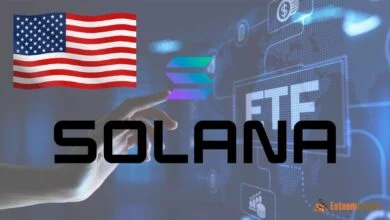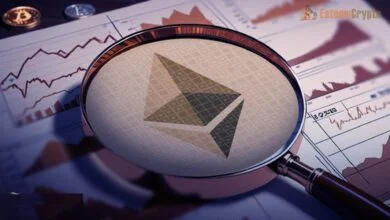
Ethereum ETF. There were worries that Ethereum ETFs might not be approved due to the popularity of Bitcoin ETFs. The good news for ETF enthusiasts is that the US Securities and Exchange Commission has approved eight ETFs based on Ethereum. Maybe you’re interested in Ethereum because of its reputation as a leading cryptocurrency, so you’re reading this: Ethereum ETF basics. With its intelligent contract programming capabilities, Ethereum has continuously reached new milestones, opening up new possibilities for the decentralized application (dApp) ecosystem.
Ethereum ETFs provide a new way for large-scale investors to diversify their holdings in a cutting-edge asset class. The approval of ETH ETFs could boost Ethereum’s acceptance and price. We need to understand better Ethereum ETFs and how they function.
Understanding the Definition of Ethereum ETFs
Ethereum exchange-traded funds (ETFs) might have varied meanings depending on where you look. Investors can avoid buying Ethereum on cryptocurrency exchanges altogether by purchasing Ethereum ETFs. You can invest in Ethereum ETFs on renowned stock exchanges after they are approved by the SEC.
Ethereum ETFs are a breath of fresh air for more conventional investors. On regulated platforms, investors can profit from Ethereum price fluctuations. Ethereum ETFs remove the complexity of dealing with cryptocurrency exchanges and digital wallets. A unique kind of investment vehicle, an Ethereum exchange-traded fund tracks the price of Ether and gives investors a chance to profit from the cryptocurrency market.
Almost every guide on Ethereum ETFs will provide instructions on how to get one. Investors in Ethereum exchange-traded funds (ETFs) do not need a wallet or experience with cryptocurrency exchanges to purchase these funds; they are listed on conventional stock markets. Ethereum trading funds allow investors who aren’t well-versed in the technical parts of cryptocurrencies to profit from price fluctuations in the Ethereum market. Managing complicated digital assets is a headache that exchange-traded funds alleviate.
Working Mechanisms of Ethereum Exchange-Traded Funds
You can look for Ethereum ETFs to get a piece of the action without actually buying Ethereum or keeping any of it in your wallet or on an exchange. The exchange-traded fund (ETF) invests in Ethereum or assets related to Ethereum, as shown in nearly all Ethereum ETF guides. The exposure to changes in the price of Ethereum and the structure and buying mechanism are the two most important parts of how Ethereum ETFs function.
The fund’s establishment is the primary focus of the structure and buying method. To build up Ethereum ETFs, fund managers establish a fund to monitor the price movements of Ethereum. Common stock exchanges make it easy to buy and sell fund shares. The use of crypto exchanges is more complex and time-consuming than this alternative.
Once you’ve figured out how to get Ethereum ETF, the following step is to plan how to make money with them. Because they are directly tied to the price of Ether, investors in Ether ETFs don’t need to worry about managing their investments. The value of Ethereum exchange-traded funds (ETFs) reacts proportionally to changes in the value of Ethereum. Those who want to speculate on the price of Ethereum but don’t want to act on any cryptocurrency can do so with the help of Ethereum ETFs.
Common Variants of Ethereum ETFs
There are two varieties of Ethereum ETFs. It would be best to familiarize yourself with the basics of Ethereum ETFs, paying close attention to the many Ethereum ETFs so you can choose the one that suits your needs the best. Ethereum exchange-traded funds (ETFs) can be spot- or futures-based, each with unique features and functionality.
Spot ETFs are like big digital wallets; they store Ether right there. Spot ETFs for Ethereum track the price of Ethereum in real-time, giving investors immediate exposure to the market. Any change in the current price of Ethereum would affect the value of the Ethereum spot ETF. There would be a 20% boost to the value of the ETF if the price of Ether were to rise by that amount. The fact that the fund manager is required to purchase physical Ether tokens is the unique selling point of Ethereum spot ETFs.
Due to their novel operating method, Ethereum futures ETFs have grown in popularity following the Ethereum ETF approval. Unlike spot ETFs, futures ETFs do not store physical Ethereum tokens. Futures exchange-traded funds (ETFs) put their money into contracts that allow them to buy or sell Ethereum tokens at a predetermined price in the future. Instead of tracking the price of ether in real-time, Ethereum futures ETFs are heavily dependent on speculation.
Remember that commodities exchange listings are a great way to get your hands on Ethereum futures contracts. Without the hassle of direct ownership, futures contracts provide direct exposure to the price swings of Ethereum. The worth of Ethereum futures exchange-traded funds (ETFs) depends on how well the futures contracts work.
Ethereum Spot ETFs
Directly purchasing Ethereum tokens and holding them in a reserve fund is what spot ETFs do. Ethereum’s current market price directly correlates to the value of spot ETFs. Spot ETFs allow investors to gain exposure to the price swings of Ethereum in real time. Ethereum spot ETFs function similarly to large digital wallets, holding Ethereum (ETH) for you.
Remember that spot ETF purchases and sales of ETH might influence market supply and demand. Spot ETFs are particularly susceptible to Ethereum market volatility because of their direct exposure to price movements in ETH. Evolve Ethereum ETF and Purpose Ethereum ETF are two well-known Ethereum spot ETFs.
Ethereum Futures ETFs
To buy or sell Ethereum (ETH) at a future date and price, Ethereum futures ETFs invest in contracts that outline these terms. The primary basis for futures exchange-traded funds is the expectation of future price movements in Ethereum. You need a higher risk tolerance to invest in futures ETFs instead of spot ETFs, which reflect the current value of ETH. Futures contracts based on Ethereum, including well-known brands like VanEck Ethereum Strategy ETF, have become increasingly popular since the Ethereum ETF was approved. Ethereum futures exchange-traded funds wager on the predicted price of ETH for tomorrow instead of its current value.
Ethereum futures ETFs’ main benefit is removing the hassle of digital asset custody. When you invest in futures exchange-traded funds (ETFs), you can avoid the risks associated with cryptocurrency holdings directly in your portfolio. Futures ETF trading barely affects Ethereum’s supply and demand on the market.
When it comes time to roll over an Ethereum futures ETF, a few extra charges add some complexity. Futures exchange-traded funds put investors at risk when the value of Ethereum and related markets fluctuate. Ethereum futures exchange-traded funds (ETFs) are best suited for investors with a high-risk appetite and extensive knowledge of the futures markets. Contract renewals occur regularly and can add extra expenses, so be careful. Investor choice, risk tolerance, and exposure are critical considerations when deciding between spot and futures exchange-traded funds.
How Will the Approval for Ethereum ETFs Change Everything?
Following the SEC’s approval of Ethereum ETFs, investors’ interest in familiarizing themselves with the basics of these funds has grown. The exponential rise in Ethereum’s value, coupled with the approval of Ethereum ETFs, would shake up the cryptocurrency industry like no other. To increase the likelihood of Ether’s widespread adoption, investors can take advantage of ETFs’ convenience.
Investing in Ethereum through exchange-traded funds is a regulated option. Ethereum ETFs have security and privacy features that institutional investors can rely on. The market would mature and become stable due to the significant increase in institutional capital inflow.
The SEC With the approval of the Ethereum ETF, the cryptocurrency industry is sure to see a domino effect, leading to the development of new and exciting financial products centered around cryptocurrency. Additionally, Ethereum ETFs might be a stepping stone toward more understandable regulatory standards and legal frameworks for cryptocurrency investing.
Conclusion
There was optimism regarding the launch of Ethereum ETFs following the January 2024 approval of Bitcoin ETFs. The introduction of Ethereum ETFs would be a watershed moment for investors and the cryptocurrency industry as a whole. The Ethereum ETF guide highlighted the possible motivations for institutional investors to be interested in ETFs. When managing digital assets, Ethereum ETFs remove the complexity and security risks.
The fact that two distinct Ethereum ETFs are available is more evidence of these funds’ influence in the broader cryptocurrency market. Investors can pick between spot ETFs or futures ETFs depending on their needs and objectives.






